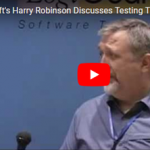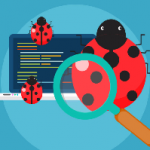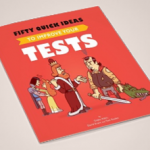 David S. Janzen – Associate Professor of Computer Science Department California Polytechnic State University, San Luis Obispo – homepage
David S. Janzen – Associate Professor of Computer Science Department California Polytechnic State University, San Luis Obispo – homepage
LogiGear: How did you get into software testing and what do you find interesting about it?
Professor Janzen: The thing I enjoy most about computing is creating something that helps people. Since my first real job building telecommunications fraud detection systems, requirements and design were the most fun. Then when I heard about this thing called test-driven development, and something just clicked. Using unit test specification to do design made sense to me — plus, you get this great side effect of all these automated tests to make refactoring and maintenance easier. I guess I got pulled into software testing by way of software design.
LogiGear: What kind of work are you doing and how did you pick those specific testing topics?
Professor Janzen: My PhD research focused on how test-driven development (TDD) affects the internal, or design quality of software. I did a bunch of experiments with students and software professionals that provided some evidence about the benefits of TDD. The experiments are pretty straightforward:
Get two groups of essentially equivalent programmers, ask them to complete the same tasks, but have one group use the approach you are studying while the other uses the “traditional” approach. Then collect metrics and surveys to see how the two approaches varied.
Having become convinced that TDD is a great way to design and build software, my recent efforts have moved toward incorporating TDD into computing education.
I think TDD is taking the same path that objects took in the early ’90s. Folks in the industry started adopting objects so the broader academic community took notice. However, they mostly considered object-oriented programming to be an advanced concept, so it started to appear in graduate and upper-level courses. As educators became more comfortable with the approach, objects eventually made it down to first-year courses. I think the same is happening with TDD, so I am building tools and doing experiments to demonstrate that TDD can be taught to beginning programmers with great success. I call the approach Test-Driven Learning (TDL).
My current project is a web-based development environment for beginning programmers that will incorporate TDL-inspired labs. It will soon be available at http://web-ide.org.
LogiGear: How can a college student prepare to go into software testing and become really good at it and what should he or she look for in teachers, courses, and methods?
Professor Janzen: Software testing is such a great field to study. My students who are good at software testing often get the best job offers. Most undergraduate computer science and software engineering programs don’t have separate courses in software testing. The best route is to do well in your core programming courses, and then take as many software engineering courses as you can. Many software engineering courses involve team projects. Volunteer to be a software tester or quality assurance manager. Or, take the role of system integrator or build manager.
These roles will give you exposure to many of the automation tools that software testers use, and will help you start thinking about how to break software and not just how to build it.
LogiGear: What sort of graduate programs should college graduates consider? Also, in your opinion, what are some of the more interesting research questions people are asking now and what do you think they’ll be researching in 5 years?
Professor Janzen: There are two routes you might consider in graduate school. If you want to be involved in software development in companies and lead software teams, look at masters in software engineering programs. Many of these programs cater to software professionals who are already working in industry, by offering courses in the evenings or on weekends. If you are interested in more cutting-edge research, such as building new software testing tools, or developing new software testing methods, consider going to a traditional Computer Science PhD program. There are lots of smart researchers working on really interesting testing topics.
In five years? Well a lot of work seems to be focused on automatically generating automated tests, and also on tools for working with models. Look for some of the top software testing conferences and try to attend. Read software testing trade journals — there are plenty online, and many are still published in magazine format. Try to identify and follow interesting and cutting edge active researchers – and maybe if you’re lucky you’ll get a chance to meet these pioneers in person, which can be an exciting and thought provoking experience.
LogiGear: Lastly, who do you consider to be some of the leaders in this field and what are they doing in the field of software testing and development?
Professor Janzen: I am interested in some of the work being completed by Tao Xie and Laurie Williams at North Carolina State University. Tao is doing a lot of work with automated software testing and data mining. Laurie has working on static analysis tools, reliability, security, and mutation testing.
LogiGear: Thank you, Professor Janzen.



















